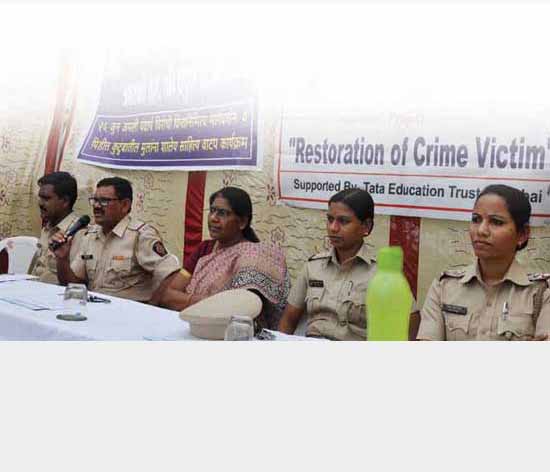
Tata Trusts has been spearheading social change in the systems of criminal and juvenile justice in India, focusing on addressing the needs of the most marginalised sections of society. With implementation across 11 states, directly or in partnership with the state governments or by providing grants to civil society organisations (CS Os), the programme also works on policy and advocacy, which includes research on the issue of police reforms, judicial reforms, concerns related to victims, rehabilitation of prisoners, and victims of trafficking.
Rama (pseudonym) belongs to a rural family in Maharashtra, supported solely by her father, who earned a living as a construction worker. Her mother would regularly drop her off and pick her up from an Anganwadi in the area. After returning home, Rama would happily spend time playing with her 7-month-old brother.
One day, when she was alone at home, a 35-year old man residing near her Anganwadi forcibly took her to his house. Rama — a little over four years old then — was quick to raise an alarm by shouting loudly when he locked her up inside a room; she was rescued by her mother and an Anganwadi worker who were looking around for her. The man, with previous record of charges of sexual assault, fled from the spot. Rama’s family lodged a complaint in the police station against the habitual criminal.
The case was referred to Developing Intervention for Social Human Action (DISHA), a partner of the Trusts, working on crime prevention and post crime intervention. DISHA’s social worker provided moral support and legal guidance to the traumatised family. They were assisted on availing support from the Manodhairya Scheme which is aimed at providing financial, medical and legal aid, rehabilitation and counselling to victims of rape and child abuse. Upon noticing a rare skin disease on Rama’s hands and legs, the social worker also provided her with suitable medical aid.
Meanwhile, Rama’s father succumbed to a heart attack and her mother began facing torture from her in-laws. DISHA intervened by providing social and legal guidance and counselling to prevent domestic violence and to help her continue in her house. The team explored livelihood opportunities for her through a collaborative project with Rotary Club Amravati. Overwhelmed by the support, she says, “Due to the responsibility of my toddlers, I could not begin work. But I’m thankful to the team as they have secured my seed money in a fixed deposit account”. They also helped her apply for the Bal Sangopan Yojana — a scholarship scheme for single-parent children in Maharashtra. Under a health camp organised by the Rotary Club, DISHA helped Rama undergo advanced plastic surgery and get relief from her rare skin disease. Her skin looks normal now and she is happy to have regained her confidence.
This story has been taken from the SDTT annual report 2016-17.
